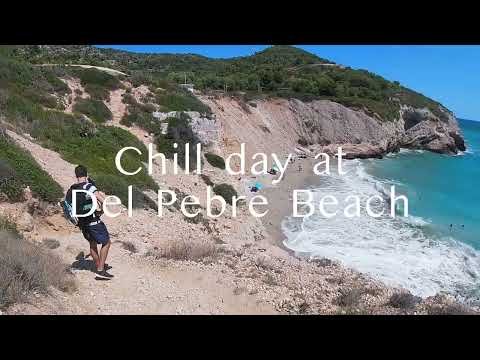🏖️ Discover Hidden Beaches in Spain 🏝️🌊

Spain is known for its stunning beaches, with its Mediterranean coastline and the Atlantic Ocean offering visitors a wide array of options. However, beyond the popular beaches that attract hordes of tourists every year, there are also hidden beaches waiting to be discovered. These secluded coastal spots offer a more relaxed and intimate experience, where you can enjoy the sun, sand, and sea in peace. In this article, we'll guide you through some of the best hidden beaches in Spain that you should definitely add to your travel bucket list. From hidden coves to secluded stretches of sand, get ready to explore some of Spain's most beautiful coastal gems.
What is the most remote beach in Spain
Spain is famous for its stunning beaches, and it's no wonder why it's one of the most popular tourist destinations in the world. But if you're looking for a secluded getaway, you might be wondering: what is the most remote beach in Spain?
After some research, we can confidently say that the most remote beach in Spain is Cala Fustam. This hidden gem is located on the island of Menorca, which is part of the Balearic Islands. To get to Cala Fustam, you'll need to take a rugged path that leads through a pine forest. It's about a 45-minute hike, but the stunning views along the way make it worth the effort.
Once you arrive at Cala Fustam, you'll be rewarded with crystal-clear waters that are perfect for swimming and snorkeling. The beach is surrounded by cliffs, which make it feel like a secluded cove. There are no facilities or restaurants nearby, so be sure to bring your own food and water.
If you're looking for a beach that's off the beaten path, Cala Fustam is definitely worth checking out. Just remember to bring good hiking shoes and plenty of supplies, as it's truly a remote destination.
Other secluded beaches in Spain include Cala Macarella and Cala Mitjana, also located on the island of Menorca. These beaches are accessible by foot or boat, and offer stunning views and clear waters.
So if you're looking to escape the crowds and enjoy a peaceful day at the beach, consider visiting Cala Fustam or one of the other remote beaches in Spain. You won't regret it!
What is a blue flag beach in Spain
If you're planning a beach vacation in Spain, you might have come across the term "blue flag beach" while researching. But what exactly does it mean?
Blue flag is an international certification system that recognizes beaches and marinas that meet certain environmental, safety, and accessibility standards. The program is managed by the Foundation for Environmental Education (FEE) and is awarded annually to beaches and marinas in over 30 countries around the world.
In Spain, the blue flag program has been in place since 1987. To receive a blue flag certification, a beach or marina must meet strict criteria in four categories:
- Water quality
- Environmental management
- Safety and services
- Environmental education and information
Water quality is perhaps the most important criterion, as it ensures that the water is safe and clean for swimming. Beaches are regularly tested for pollutants and must meet certain standards for bacterial levels, clarity, and temperature.
Environmental management refers to the measures taken to preserve and protect the natural environment surrounding the beach or marina. This includes waste management, conservation of flora and fauna, and sustainable practices.
Safety and services include facilities such as lifeguards, first aid stations, and toilets. Beaches must also have adequate signage and safety measures in place, such as designated swimming areas and warning flags for dangerous conditions.
Environmental education and information involves educating visitors about the importance of preserving the environment and promoting sustainable practices. This can be done through signage, educational programs, and public outreach.
Overall, the blue flag program is a way to encourage sustainable tourism and reward beaches and marinas that prioritize environmental protection and safety. When you see a blue flag flying at a beach in Spain, you can trust that it's a clean, safe, and well-managed destination for your beach vacation.
Thank you for joining us on this journey to discover the hidden beaches of Spain. We hope you found some inspiration for your next beach vacation. Remember, the best beaches are often the ones that are off the beaten path.
Whether you're looking for secluded coves or lively seaside towns, Spain has something for everyone. With over 5,000 miles of coastline, there's no shortage of beautiful beaches to explore.
As we say goodbye, we encourage you to pack your bags, grab your sunscreen, and start planning your next Spanish beach adventure. Adiós!
If you want to discover other articles similar to 🏖️ Discover Hidden Beaches in Spain 🏝️🌊 you can visit the category Spain.
Leave a Reply

¡More Global Tours!